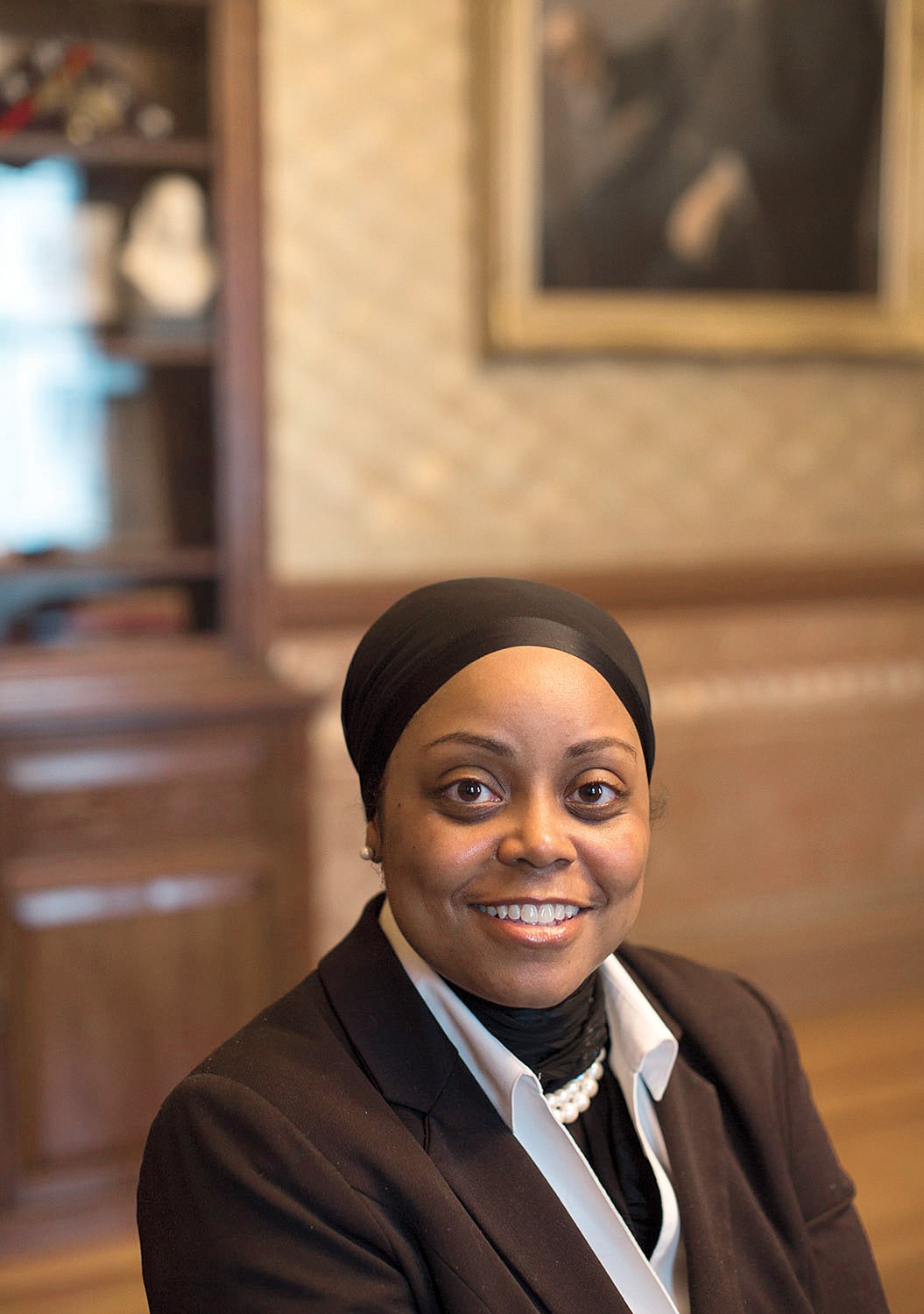Raheemah Abdulaleem ’01 was standing on a Washington, D.C., street corner in 2009 on her way to work at the Justice Department’s Civil Rights Division when a man yelled at her from his car to “go back to your country.”
Abdulaleem, an African-American who grew up in Philadelphia in a family whose roots in the United States are nearly as old as the country, was wearing a hijab, the traditional headscarf worn by some Muslim women.
In that moment, Abdulaleem said, she “was flooded with disbelief, shock, anger, and fear” and too flustered to engage the heckler. Only later, she asked herself why she didn’t say something—and why no passersby interceded or even asked if she was OK.
Abdulaleem described the experience in a February blog post on the website of the White House, where she now works in the Executive Office of the President’s Office of Administration. She was one of several Muslim White House staffers who detailed their personal experiences with discrimination on the occasion of the first visit of President Barack Obama ’91 to a U.S. mosque.
She’d never encountered such a public or hostile reaction to being a Muslim while growing up in Philadelphia, where her parents taught in the city’s public schools for decades. They inspired her own interest in public service, and she knew she wanted to be a lawyer even before she started college at Yale.
Learning about the history of voting rights in Harvard Law School Professor Lani Guinier’s course in law and the political process was a “transformative experience.” She became equally fascinated with employment law while taking that class as a 2L. “To me, it was a practice area with a human component,” Abdulaleem said. “Real people were affected by discrimination and harassment in the workplace.”
She had just started working in the Atlanta office of King & Spalding when news of the 9/11 attacks interrupted her new employee training session. The firm asked Abdulaleem and her sister, who was also working at the firm, along with a third Muslim woman, to meet with colleagues and “help dispel myths and misconceptions” they might have about Islam.
Abdulaleem spent a total of eight years at King & Spalding and then Ballard Spahr in Philadelphia, where she practiced labor and employment law. In 2009, she moved to the Justice Department’s Civil Rights Division, which she said was the “perfect way” to combine her employment law experience and commitment to civil rights.
Her office brought cases against state and local governments on behalf of victims treated unequally due to their race, color, sex, disability, religion or national origin. Her cases ranged from a prison employee sexually harassed by his female co-worker to police officers seeking accommodation to wear beards while on duty in accordance with their religious beliefs.
In May 2015, Abdulaleem moved over to a nonpolitical career position in the Executive Office of the President. She represents the Office of Administration in matters before administrative agencies on issues such as equal employment opportunity compliance and fiscal and appropriation law. She compares the work of her office to that of an engine in a car. “The work we do is not always seen by the public, but it is vital to the smooth operation of the ‘car’,” she said.
Abdulaleem was among a half dozen Muslim White House staff members who shared their experiences online when President Obama visited the Islamic Society of Baltimore in February.
The breadth of their backgrounds and range of their jobs at the White House underscore the many ways Muslims work to provide “service to our nation,” she said. “We are lawyers, doctors, accountants and scientists. We are not of one race or national origin. We bring a diversity of experiences and perspectives to our work.”
Outside of work, Abdulaleem serves as president of KARAMAH, a nonprofit group based in Washington which provides accessible legal scholarship to Muslims and non-Muslims about issues related to Islamic law, family law, and civil rights law. She has taught courses on leadership during the group’s summer law and leadership program for Muslim women from the U.S. and abroad.
“It is amazing to me year after year to see such motivated women of faith who want to effect positive change in their communities,” she said.
